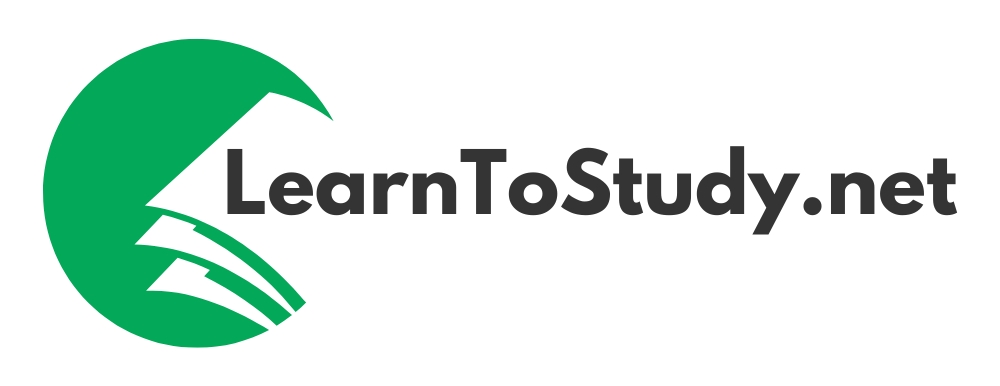
Navigating the vast ocean of academic material can often feel overwhelming for students. From the dense pages of textbooks to the intricate details of lecture notes, the ability to efficiently extract, condense, and synthesize information is a critical skill in the toolkit of successful learners. Effective synthesis techniques for information not only aid in managing this flood of data but also in transforming it into coherent, accessible knowledge. This article delves into the art and science of information synthesis, offering advanced techniques and strategies to enhance learning and academic performance.
The Importance of Synthesis in Academic and Professional Success
Synthesis is the process of combining different ideas, findings, or information to form a cohesive whole. It is a crucial component of effective learning and critical thinking, allowing students to draw connections between various pieces of information, analyze them, and construct new understandings. Mastering information synthesis for academic success is not just about improving grades; it’s about developing a skill set that is invaluable in any professional setting. By enhancing comprehension with synthesis skills, individuals are better prepared to tackle complex problems, make informed decisions, and articulate ideas clearly and persuasively.
Advanced Techniques for Synthesizing Information
- Strategic Reading for Synthesis: Begin with a purposeful approach to reading. Instead of passively absorbing information, actively look for connections, themes, and contradictions. This strategic reading sets the stage for a more effective synthesis process.
- Critical Annotation and Note-taking: Develop a system of annotation that works for you, whether it’s marginal notes, highlighting, or a digital annotation tool. Pair this with a structured note-taking method, like the Cornell system, to organize your thoughts and identify key concepts for synthesis.
- Mind-Boosting Study Methods for Students: Utilize techniques like the Feynman Technique, which involves teaching a concept you are trying to learn in simple terms, to someone else. This method forces you to understand the information deeply and identify gaps in your knowledge, facilitating effective synthesis.
- Leveraging Technology for Enhanced Synthesis: Take advantage of digital tools that can assist in organizing and synthesizing information. Software like Evernote, Notion, or specialized mind mapping tools can help in visually organizing and connecting different pieces of information, making the synthesis process more manageable and effective.
Unlocking Your Learning Potential: Building Synthesis Skills
To truly master the art of information synthesis, it’s important to practice regularly and reflect on your learning process. Here are some strategies to build and refine your synthesis skills:
- Practice with Diverse Materials: Challenge yourself by synthesizing information from various sources, disciplines, and formats. This diversity will enhance your ability to see connections and integrate knowledge across different contexts.
- Engage in Collaborative Learning: Work with peers to synthesize information on a shared topic. This collaborative approach can offer new insights, challenge your understanding, and refine your synthesis skills through discussion and debate.
- Teach What You Learn: One of the most effective ways to solidify your synthesis of information is to teach it to someone else. This not only reinforces your understanding but also highlights areas that need further clarification.
- Continuous Reflection and Feedback: Make it a habit to reflect on your synthesis process and seek feedback from peers, mentors, or educators. Constructive criticism can provide valuable insights into how to improve your synthesis skills.

The Role of Critical Thinking in Effective Synthesis
Critical thinking is the cornerstone of effective synthesis. It’s the engine that powers our ability to analyze, evaluate, and integrate diverse pieces of information into a cohesive whole. This section delves into how critical thinking enhances our synthesis skills, enabling us to transform a wide array of data, opinions, and research into insightful conclusions and innovative solutions.
Understanding Critical Thinking
At its core, critical thinking involves questioning assumptions, evaluating evidence, and reasoning logically to arrive at well-founded conclusions. It’s about being both open-minded and skeptical, willing to consider multiple viewpoints but also rigorous in testing the validity and relevance of information. Critical thinking enables us to discern the quality of information, identify biases, and recognize the interconnections between seemingly disparate ideas.
Enhancing Information Analysis
Effective synthesis requires more than just compiling information; it demands a deep analysis that critical thinking provides. This involves breaking down complex information into its constituent parts, examining each element’s significance, and assessing how they relate to one another. Critical thinking prompts us to ask the right questions: What is the source of this information? Is it reliable? How does it fit within the broader context? By applying these critical lenses, we ensure that our synthesis is grounded in thorough analysis and logical reasoning.
Fostering Open-minded Evaluation
Critical thinking fosters an open-minded approach to evaluation, encouraging us to consider various perspectives before synthesizing information. This openness is crucial in avoiding the trap of confirmation bias—the tendency to favor information that confirms our pre-existing beliefs. By actively seeking out and evaluating contradictory evidence and alternative viewpoints, we enhance the depth and breadth of our synthesis, ensuring it is balanced and comprehensive.
Driving Innovative Integration
The synthesis of information is not just about aggregation; it’s about creating something new and valuable from the integration of diverse ideas. Critical thinking is pivotal in this process, enabling us to see connections and patterns that others might miss. It drives innovation by encouraging us to recombine information in novel ways, challenge conventional wisdom, and propose unique solutions to problems. This creative aspect of synthesis is what leads to breakthroughs in knowledge and technology.
Developing a Critical Thinking Framework
To cultivate the role of critical thinking in effective synthesis, consider adopting the following practices:
- Reflect on your thinking process: Regularly evaluate your reasoning, biases, and assumptions. Reflection helps in honing your critical thinking skills over time.
- Engage in debate and discussion: Participate in or observe debates on various topics. This exposes you to different argumentation styles and enhances your ability to think on your feet.
- Practice problem-solving: Tackle problems from multiple disciplines. Each field offers unique challenges and perspectives that enrich your critical thinking and synthesis abilities.
- Seek feedback: Constructive criticism from peers, mentors, or educators can provide insights into your thought processes and help you improve your synthesis skills.
Critical thinking is indispensable in the art of synthesis. It enriches our ability to process, analyze, and integrate information, leading to more profound insights and innovative outcomes. By fostering critical thinking, we enhance our synthesis skills, enabling us to navigate the complexities of the modern world with confidence and clarity.

Expanding the Framework: Beyond Academic Synthesis
In today’s fast-paced and complex world, the ability to synthesize information extends far beyond the confines of academic assignments or classroom discussions. Synthesis skills are crucial in navigating the vast array of challenges and opportunities encountered in professional and personal life. This skill set enables individuals to distill complex information into actionable insights, fostering decision-making, problem-solving, and innovation across various contexts.
Bridging Academia and Real-World Application
Effective synthesis is not just about academic success; it’s a foundational skill that bridges the gap between theoretical knowledge and practical application. In the professional realm, whether you’re in technology, healthcare, business, or the arts, the ability to synthesize information from diverse sources can be the difference between stagnation and breakthrough. It allows professionals to create cohesive strategies, innovate solutions, and adapt to changing environments by integrating new information with existing knowledge.
Synthesis in Problem-Solving and Innovation
The role of synthesis in problem-solving and innovation cannot be overstated. Professionals who excel at synthesizing information are often at the forefront of innovation, capable of seeing connections where others see discord. For instance, in product development, synthesizing user feedback, market trends, and technological capabilities can lead to the creation of groundbreaking products that meet unarticulated needs.
Real-world examples abound where synthesis has led to significant breakthroughs. Consider how interdisciplinary research teams synthesize findings from biology, engineering, and computer science to develop cutting-edge medical technologies. Or, how policymakers synthesize economic data, scientific research, and public opinion to craft legislation that addresses complex societal issues.
Enhancing Personal Decision-Making
On a personal level, synthesis skills empower individuals to make informed decisions about their health, finances, and relationships. By synthesizing information from various sources, individuals can evaluate the pros and cons of different options and make choices that align with their goals and values. This process of synthesis is particularly relevant in an era of information overload, where the ability to discern relevant information and disregard the irrelevant is crucial.
Cultivating a Synthesis Mindset
Developing a synthesis mindset involves continuous learning and practice. It requires curiosity, open-mindedness, and the willingness to explore multiple perspectives. To cultivate this mindset:
- Seek diverse sources of information: Engage with a variety of materials, from scientific journals to art exhibitions, to broaden your understanding and appreciation of different viewpoints.
- Practice critical analysis: Regularly challenge yourself to identify the underlying assumptions, biases, and connections within the information you encounter.
- Engage in interdisciplinary discussions: Participate in conversations with individuals from different fields and backgrounds to gain new insights and perspectives.
The ability to synthesize information is a transformative skill that extends far beyond academic achievement. It is integral to professional success, personal growth, and the capacity to contribute meaningfully to society. By expanding our framework of synthesis to encompass a wide range of real-world applications, we unlock the potential to navigate the complexities of modern life with confidence and creativity.
Conclusion: Transforming Information Overload into Knowledge with Synthesis
The ability to synthesize information effectively is a cornerstone of academic success and lifelong learning. By adopting advanced synthesis techniques and strategies, students can enhance their understanding, improve retention, and achieve higher academic performance. Remember, synthesis is not just about processing information; it’s about transforming that information into knowledge that can be applied in real-world situations. With practice, patience, and perseverance, anyone can master the art of synthesis, unlocking their full learning potential and paving the way for academic and professional success.

